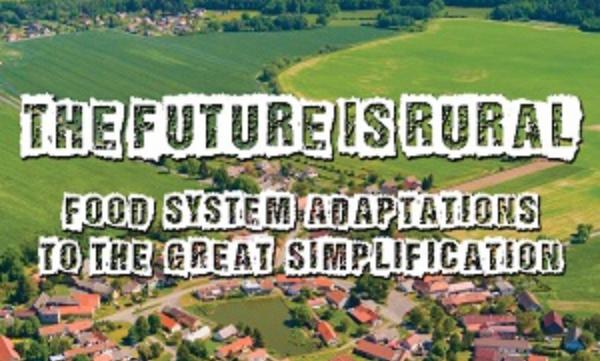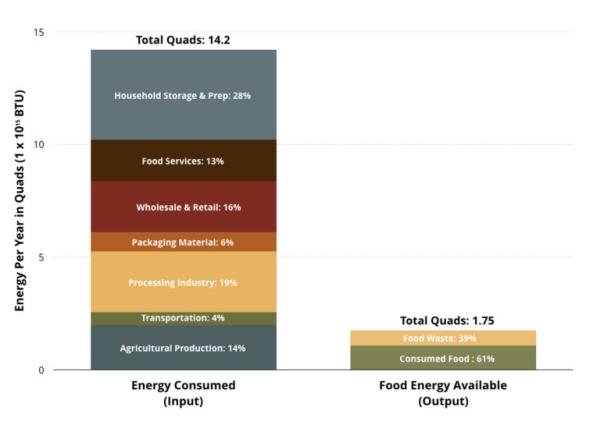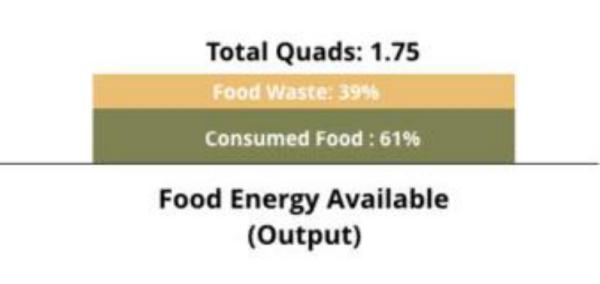The future is only rural, unless cities...
become REALLY smart. Otherwise it will be just rural, that is not bad, but not as good as it could and should be.

Paraphasing Einstein, everything should be as rural as possible. Just not TOO rural
</em></u>
This excerpt of the “Future is Rural” report elaborates on this thesis:
“[In the 21st century] The eventual decline in fossil hydrocarbon flows, and the inability of renewables to fully substitute, will create a deficiency of energy to power bloated urban agglomerations and require a shift of human populations back to the countryside. In short, the future is rural.”
Is the future rural?
I agree with the report when it says that the belief that technology will continually advance and solve everything is just a myth, and one with still too many followers. I also agree when it says that (synthesis mine):
“Skyscraper farms, biofuels, precision farming, artificial meat…. Most of these are doomed to fail, either completely or at least on the scale proposed. It is necessary, instead, to take into account biophysical realities [and] the fact that renewable energy systems will not seamlessly power the same kind of food production and consumption that fossil fuels are giving us”.
Speaking of food production…
To prove its thesis, the excerpt includes the energy budget of the U.S. food system, which is partitioned as follows:
- 14%: farm activities and inputs such as fertilizers
- 25%: processing and packaging
- 29%: warehouses, grocery stores, cafeterias, and restaurants
- 28%: used by households to shop, use refrigerators and cook.
- 4%: transportation, so small thanks to processing and warehousing, see above

<u><em><strong>CAPTION:</strong>
<a href="/img/energy-input-and-output-in-the-food-system.jpg" target="_blank">Click for bigger version</a>
</em></u>
Basically, that chart says two things. One is that, today, only 14% of all the energy that US residents (but every “First World” country is in a similar situation) consume to bring to their mouths the energy and raw materials they require to stay alive (or get obese, but that’s another issue) is used to actually produce that food.

The other thing is that less than 8% of all the energy that U.S. residents consume to just stay alive actually does that job. The remaining 92% is consumed, instead, to:
- make it possible to find food from half a planet away, in any season
- spend little or no time at all preparing food personally
- and, in general, to allow as many people as possible to not work in agriculture, as it was the standard until just a few centuries ago
The problem is that the current system (again: in all “developed” countries, not just U.S.!) uses way too much energy, in ways that are basically impossible to replace. Even the initial part of the current food system, that is agricultural production, is too heavily affected by intermittency of renewable energy, “energy density” and land constraints. For example:
- if they must keep working as today, farmers can’t afford to hope that the sun shines or the wind blows just when it is the right moment for field activities, or that batteries can always store enough energy, long enough
- tanks of liquid fossil fuels are the only system known today with which a tractor can carry on itself enough energy to work non-stop for many hours, with whatever weather, on rough terrain
- using local biofuel to power a tractor, or a local solar plant to recharge its batteries, would consume much more local land than, say, a gas station to refill its tank. Similar considerations may apply to replacing chemical pesticides and fertilizers with non-fossil-fuel alternatives
- just like oil fields, the best places to extract renewable energies are often far away from the places best suited for agricultural production
Farms of the future
The conclusion of the report are that:
- the farms of the future will need to make do with local biomass (wood, straw, crop residues, extracted sugars or oils), instead of fossil fuels, both as power sources and as fertilizers or pesticides (using guano coming from abroad on fossil fuels is not an option…)
- no matter how you look at it, the total amount of energy available to human society, for agriculture or any other need, will be “far less that what we are accustomed to now”
My thoughts or: What about the cities?
Most human beings living today will have soon to make do with “far less energy than they are accustomed to now”? Nothing new so far, not for me and many others, at least.
Besides that, it is worth pointing out that “weaning ourselves from oil and natural gas” is not only, as the report says, an unavoidable consequence of peak oil or climate change. It is something worth doing, first and foremost, for the political and social reasons I already explained here.
As far as cities so bloated and energy-demanding that they require a big “shift of human populations back to the countryside”, I would argue that:
- yes, we DO have to stop wasting food, and reduce as much as possible the amount of energy used to transport food across the world, and that of chemicals involved. Even when this means eating less, quitting eating “exhotic” food or getting our hands dirty with raw food, instead of just opening plastic packages. The easier that happens, the better, also for public health
- but the whole point of civilization was, and should remain, to “make as many people as possible free of doing what they can do best, instead of being obligated to work the land, in order for the whole species to survive” (*)
- and this is not impossible, if we:
- exploit the FULL potential of Open Digital DIY manufacturing, in rural areas and everywhere else
- make big cities REALLY smart, instead of the crap that passes for smart these days
Last but not least… Dr. Bradford, author of the report, concludes that “relatively few have pondered what the transformations in energy and agriculture mean or how we can go through them gracefully."
Here, and elsewhere, I am trying to do just that, and would love to do more. Whoever has practical suggestions or offers on this, please let me know, or check out other ways to support me here, thanks.
(*) that is a deliberately short synthesis of something I read on Slashdot, a long time ago
Who writes this, why, and how to help
I am Marco Fioretti, tech writer and aspiring polymath doing human-digital research and popularization.
I do it because YOUR civil rights and the quality of YOUR life depend every year more on how software is used AROUND you.
To this end, I have already shared more than a million words on this blog, without any paywall or user tracking, and am sharing the next million through a newsletter, also without any paywall.
The more direct support I get, the more I can continue to inform for free parents, teachers, decision makers, and everybody else who should know more stuff like this. You can support me with paid subscriptions to my newsletter, donations via PayPal (mfioretti@nexaima.net) or LiberaPay, or in any of the other ways listed here.THANKS for your support!